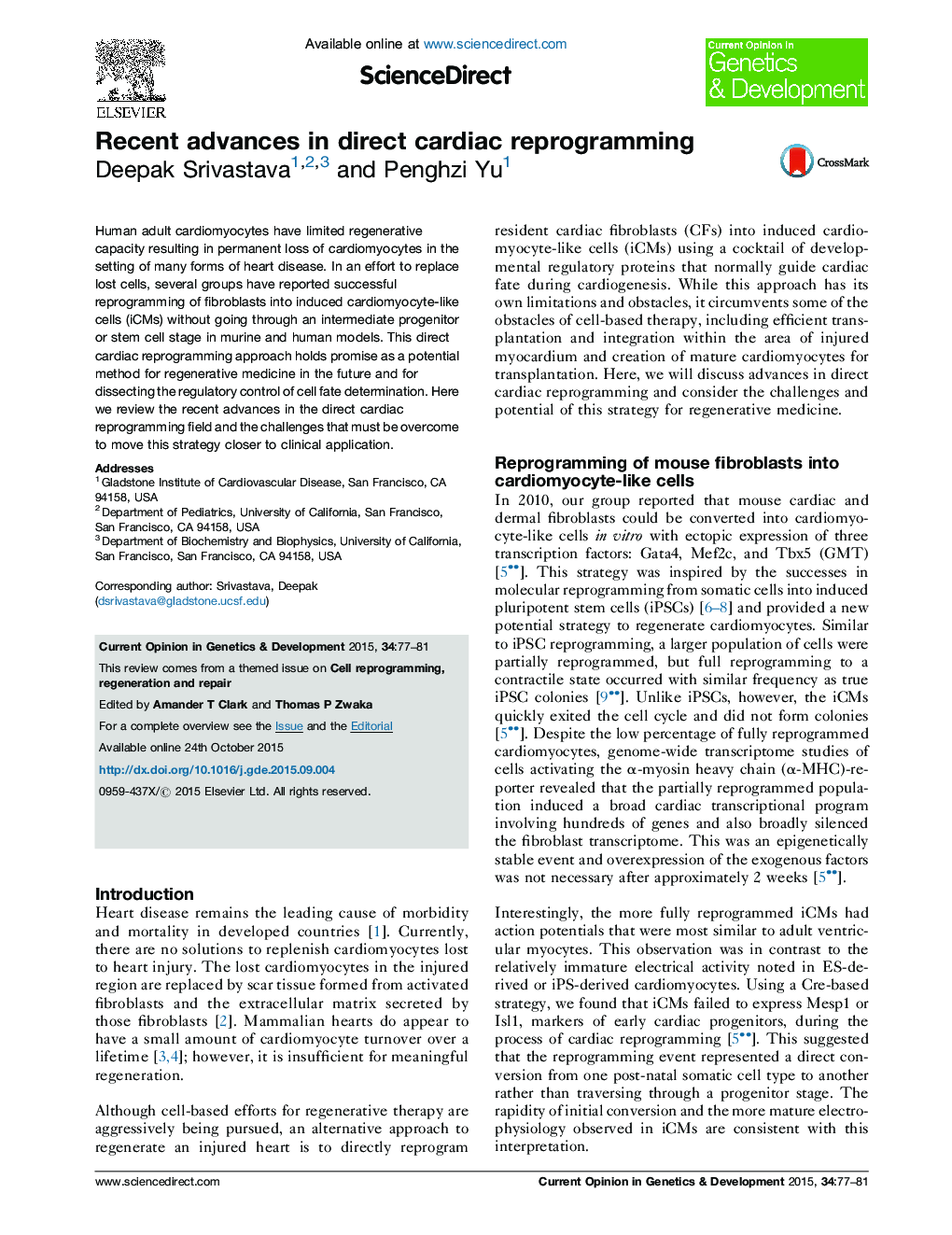| Article ID | Journal | Published Year | Pages | File Type |
|---|---|---|---|---|
| 5893093 | Current Opinion in Genetics & Development | 2015 | 5 Pages |
Human adult cardiomyocytes have limited regenerative capacity resulting in permanent loss of cardiomyocytes in the setting of many forms of heart disease. In an effort to replace lost cells, several groups have reported successful reprogramming of fibroblasts into induced cardiomyocyte-like cells (iCMs) without going through an intermediate progenitor or stem cell stage in murine and human models. This direct cardiac reprogramming approach holds promise as a potential method for regenerative medicine in the future and for dissecting the regulatory control of cell fate determination. Here we review the recent advances in the direct cardiac reprogramming field and the challenges that must be overcome to move this strategy closer to clinical application.
